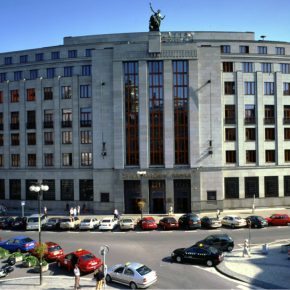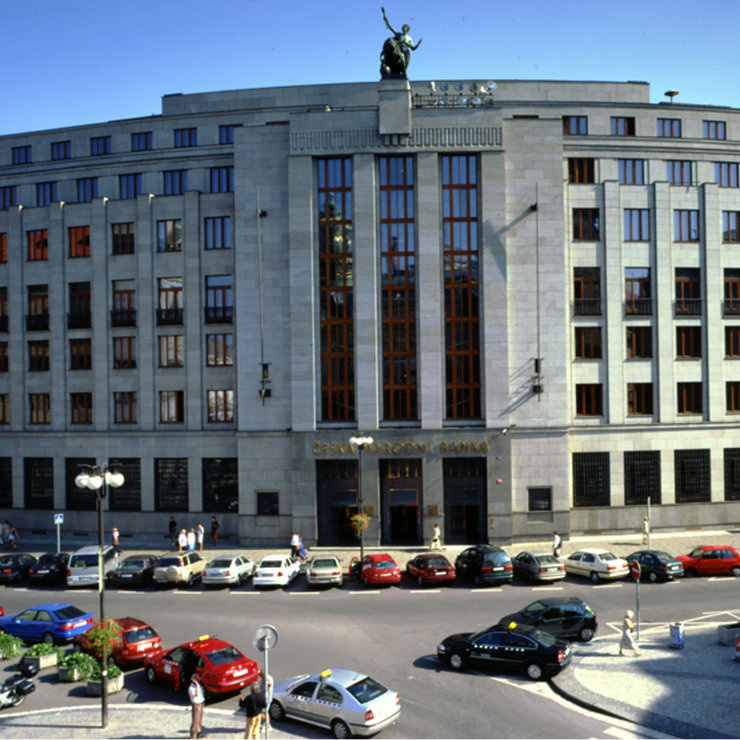
CNB headquarters, Prague, Czech Republic (CNB, Public domain)
Thus the country is relaxing spending controls that have underpinned one of Europe’s strongest budgets.
Finance policy recalibration
Low short-term borrowing costs have created a very steep yield curve, making Czech bonds look like a bargain to foreign buyers, with the highest yield premiums in a decade. Czech yields, among the world’s lowest two years ago, surged above those in most euro-zone countries as the central bank started raising borrowing costs ahead of the rest of the EU.
The country’s three-year securities now yield 1.69 per cent, above a rate of zero on the same debt from Spain or Portugal and negative returns in Germany.
Interest rates
After enjoying short-term bonds with negative yields, the Czech government is betting the fastest run of rate hikes in Europe will lure investors to its longer-term debt. “The Czech central bank has room to further raise interest rates due to inflationary pressures and prolonged crown weakness,” the Czech National Bank (CNB) board member, Tomas Nidetzky said. CNB delivered its third rate hike in as many policy meetings in September. The key two-week repo rate now stands at 1.50 per cent.
In total, the CNB has lifted rates from near zero in six steps since ending a four-year-old intervention regime keeping the crown weak in 2017, as the European Central Bank and others in the region keep loose policy in place.
The quick-fire rate increases have affected shorter bonds more than longer ones, flattening the curve and more than halving the extra yield investors demand to hold 10-year notes compared with three-year debt this year.
Coffers full and repayments on track
The Czech economy, mainly driven by domestic demand, has grown at a strong pace, cutting unemployment to the lowest in the EU in recent months. However, there are signs of a slowdown appearing.
While Czech finances are among the healthiest on the continent, it faces record repayments this year and next after concentrating on sales of two- and three-year notes in 2015 to 2017.
Ms. Schillerova said she isn’t actively considering foreign-currency funding and won’t need a CZK100bn (almost EUR4bn) credit line from the European Investment Bank that was proposed by the Transport Minister to fund road projects, and may only borrow about CZK11.5bn (EUR445m) from the lender.
Weakness could come from a deterioration in risk appetite for emerging markets, regional concerns over the escalation of trade wars or European political risk, or investors turning away from the currency.
If those dangers don’t materialize, policy makers will probably wait until the second half of next year and the start of euro-zone rate hikes before kicking off their own tightening.


